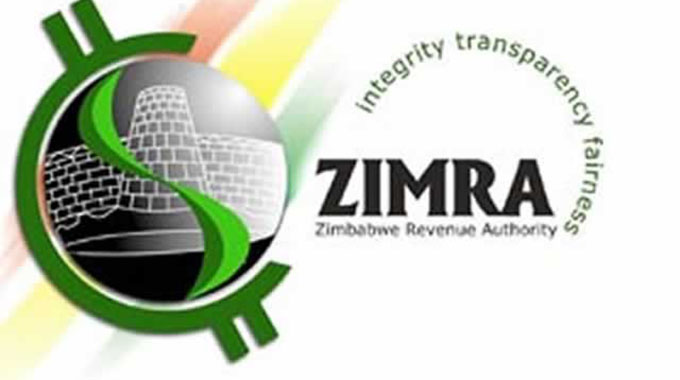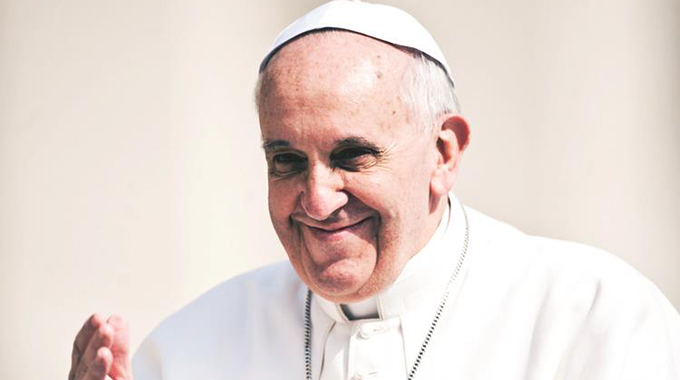EDITORIAL COMMENT: Combined efforts needed to stop smuggling

Smugglers do what they do, like everyone else in business, both legal and illegal: they want to make money, a profit, and in many cases they make money by not paying the taxes that the rest of us have to pay when we import or export.
These tax thieves are joined by another group, the people smuggling in prohibited goods. These range from dangerous drugs which we really do not want to see on our streets to things like bales of second-hand clothes which hammer both local industry, the legal importers and the taxman.
The way to clamp down on any business is to remove the profits. If people cannot make money by smuggling they will not smuggle.
The first step is to catch the smugglers. Here Zimbabwe is doing better. For example we have found new roads have been cut in the bush along the Mozambique border, and even in some cases small bridges have been built, to allow trucks carrying the clothing bales to by-pass the normal border posts.
Armed with the knowledge road blocks were set up and some trucks were caught. While those cases are still creeping though the courts the trucks and the bales are being held as exhibits. The bales will definitely be confiscated when the trial is over, but a lot depends on the courts when it comes to the trucks.
Here Parliament needs to step in. Making it clear that any vehicle involved in any smuggling activity will automatically be surrendered to the State will be a major help. A truck owner faced with minions in jail or fined, and a single cargo seized, might well be able to shrug this off as an overhead, but if that truck owner, or bus owner or car owner is minus the vehicle then they are faced with replacement costs, and licensed vehicles are no long cheap since before you can get the paperwork fixed you need to produce the tax clearance certificates.
Zinara appears to have followed Zimra and cleaned out the corruption that sometimes allowed well-connected people, and the connections could just be family ties or introductions from friends rather than a big-shot abusing their position, so real damage could be done to the smuggling business.
If confiscation of vehicles was automatic, some transport operators and bus owners might feel this was unfair, since they were never involved and it was their employees who were hiding goods.
But then they should be hiring honest staff. Obviously the contents of a suitcase carried by a passenger would not see a bus lost, but if someone had loaded smuggled goods into a secret compartment that would be different.
The second area to examine carefully is the penalties for the smugglers. In many cases the actual kingpin is not the one carrying the goods. A bunch of unemployed people have been hired, often through an intermediary or someone with a fake name, to do the heavy lifting. The need here is to make this work useless.
This must have influenced the rather sensible resident magistrate in Beitbridge when 37 young men came before him after being caught hauling cases of cigarettes across the Limpopo on their backs.
He let off the three 17-year-old juveniles with a caution, which is fair enough since schoolboys should be given a second chance, but he hammered the 34 adults with $12 000 fines and their payments for being the carriers must be less than that. The big shot who made the arrangements and got the cases of cigarettes to the bearers seems to have escaped.
But as a result of that operation the Government, via the fines office, has picked up $408 000 and that sort of money can help finance the patrols that are required. In fact it might be a good idea to keep an account of what comes in from fines and sale of vehicles and goods so that when the anti-smuggling patrols need extra equipment or supplies no one complains.
While co-operation in law enforcement within SADC is building up we are obviously a long way from the ideal.
Laws do not always align and what is a crime in one country might not be a crime next door. It is legal to drive a truck hauling bails of second-hand clothes across Mozambique. But creating new border crossings is obviously not allowed and a little bit of exchanging information would help.
South Africa complains bitterly about cigarette smuggling, even accusing Zimbabwean manufacturers of assisting. Well that is unlikely.
If you go to a cigarette manufacturer and announce you want to buy a truckload of smokes to smuggle into South Africa, they will obviously not co-operate. The smugglers use normal business channels to acquire stock and even pay their Zimbabwean excise duties since only legal exports backed by the required documentation can get exemptions or refunds.
But it would not be that difficult for the Zimbabwean law enforcement agencies to keep their eye on some cigarette traders who appear to have orders far in excess of that they can sell and pass the word. The business of smuggling cigarettes from countries with lower taxes to countries with higher taxes is a problem everywhere and since it is legal to possess the cigarettes on both sides of the border, you have to catch the smugglers at or very close to the border.
At the same time Zimbabwe would like similar assistance and information when it comes to that continual procession of smugglers on the more distance shores of cross-border trading paddling north across the Limpopo. The same teams on both sides can tackle both problems. The traffic is not one-way although the goods in each direction are different.
South Africa is not alone in dealing with smuggled and so cheaper Zimbabwean cigarettes. The rest of its customs area has the same problem.
You even find Zimbabwean cigarettes sold by roadside vendors in the far west of Botswana at somewhat below the legal prices. So again more co-operation would benefit everyone, except perhaps Zimbabwean cigarette makers and the owners of large stores near the border in South Africa and Botswana, although the cigarette makers at least have the opening to take over the export trade using the brand recognition the smugglers have created.
Once we all recognise that smuggling is, in fact, the theft of tax money needed to develop every country the effort to stop it becomes worthwhile.











Comments